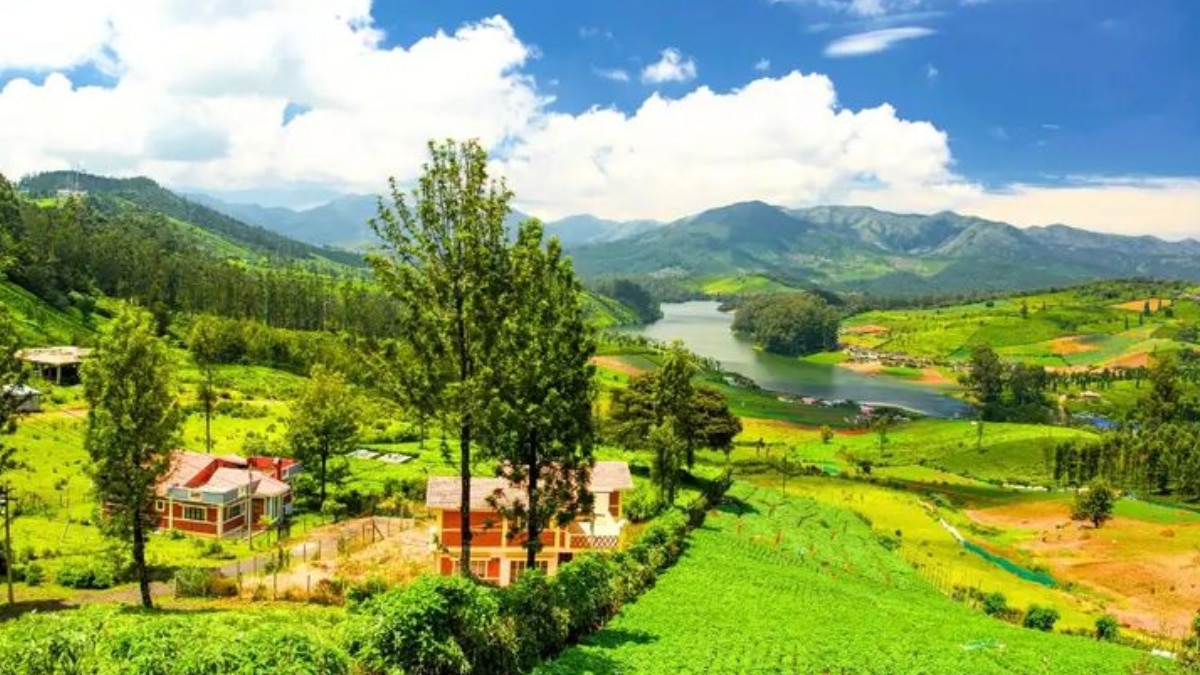From Coorg To Spiti: 5 Sustainable Travel Experiences You’ll Love
India’s diverse landscapes are a treasure trove for eco-conscious travellers. From the lush greenery of Coorg to the serene deserts of Spiti, these destinations offer not just breathtaking beauty but also a chance to travel responsibly. Along the way, you can practice sustainable travel while experiencing the unique charm of each place. Here’s a journey through five sustainable travel experiences that will inspire you to tread lightly while exploring deeply.
ALSO READ: Weekend Getaways Near Delhi To Escape The Summer Heat
1. Coorg, Karnataka: Coffee, Conservation, And Community
 (Image Source: Pinterest/bhardwajhimanshu911)
(Image Source: Pinterest/bhardwajhimanshu911)
Nestled in the Western Ghats, a UNESCO World Heritage Site and one of the world’s eight "hottest hotspots" of biodiversity, Coorg is a haven for eco-tourism. Known for its sprawling coffee plantations, this region has embraced sustainable farming practices like shade-grown coffee, which preserves biodiversity while producing premium beans. Visitors can explore eco-friendly retreats like Beforest, Mazra, The Ibnii, and more. A sustainable retreat that builds permaculture-based food forests and community spaces focused on restoring ecosystems through soil regeneration, water conservation, and biodiversity. Surrounded by streams, grasslands, elephant corridors, and coffee forests, it offers a deep connection to nature. Nearby, must-visit spots like Abbey Falls, Dubare Elephant Camp, Raja’s Seat, and Nagarhole National Park add to Coorg’s natural charm.
2. Auroville, Tamil Nadu: The City Of Dawn
 (Image Source: Instagram/@travelers.of.india)
(Image Source: Instagram/@travelers.of.india)
Auroville is more than just a destination—it’s an experiment in sustainable living. Founded on the principles of human unity envisioned by Sri Aurobindo and "The Mother," this township near Puducherry is a global hub for eco-conscious travellers. Its earth-friendly architecture, organic farms, and renewable energy projects make it a model for sustainable development.
Visitors can participate in workshops on natural dyeing, permaculture, and reforestation or volunteer in community-driven initiatives. The Matrimandir meditation center offers a serene space for introspection. With its focus on zero-waste living and alternative energy solutions, Auroville is as much about personal growth as it is about environmental harmony.
3. Ooty, Tamil Nadu: Serenity In The Nilgiris
 (Image Source: Pinterest/editortravellerchori)
(Image Source: Pinterest/editortravellerchori)
Known as the "Queen of Hill Stations," Ooty sits gracefully amidst the Nilgiri Hills. This region is part of the Nilgiri Biosphere Reserve, which is committed to preserving its rich flora and fauna. Travellers can explore tea plantations that follow eco-friendly practices or visit the botanical gardens showcasing native plant species.
For an immersive experience, opt for eco-stays like O'Land Plantation Stays, Pandora, Green Nest Resort, and more that emphasise sustainability. The cool climate and misty landscapes make Ooty perfect for slow travel—whether it’s trekking through forest trails or enjoying a quiet moment by Ooty Lake. The region’s commitment to preserving its natural beauty ensures that your visit leaves no harmful footprint.
4. Hampi, Karnataka: Ancient Grandeur Meets Green Tourism
 (Image Source: Pinterest/pilgrimagetourpackages)
(Image Source: Pinterest/pilgrimagetourpackages)
Hampi, a UNESCO World Heritage Site, is a living museum of India’s Vijayanagara Empire. Amidst its ancient temples and ruins lies a commitment to responsible tourism. The Hampi World Heritage Management Authority has implemented eco-friendly practices like green transportation and waste reduction.
Explore the Tungabhadra River’s rocky terrain or visit Virupaksha Temple while staying in eco-conscious accommodations that blend heritage with sustainability. Hampi also promotes community-based conservation initiatives, offering travellers a chance to contribute to preserving this historical gem while supporting local artisans and businesses.
5. Spiti Valley, Himachal Pradesh: High-Altitude Harmony
 (Image Source: Pinterest/onlinesandeepdas)
(Image Source: Pinterest/onlinesandeepdas)
The stark beauty of Spiti Valley offers an otherworldly experience for those seeking solitude and sustainability. This Himalayan desert is home to Ecosphere, an organisation dedicated to promoting eco-tourism while conserving local culture and nature. They’ve set up solar-powered homestays and greenhouses that support local livelihoods while reducing environmental impact.
Trek to Chandratal Lake or Pin Valley National Park with guides trained in leave-no-trace principles. Engage with locals to learn about traditional handicrafts or sample food grown in solar-powered greenhouses. Spiti’s commitment to carbon-neutral tourism ensures that your journey here contributes positively to both people and the planet.
Travelling sustainably from Coorg to Spiti isn’t just about reducing your environmental footprint—it’s about connecting deeply with nature and communities while supporting practices that preserve these treasures for future generations. Each destination offers unique opportunities for responsible tourism that enriches both the traveller and the environment alike.
lifestyle